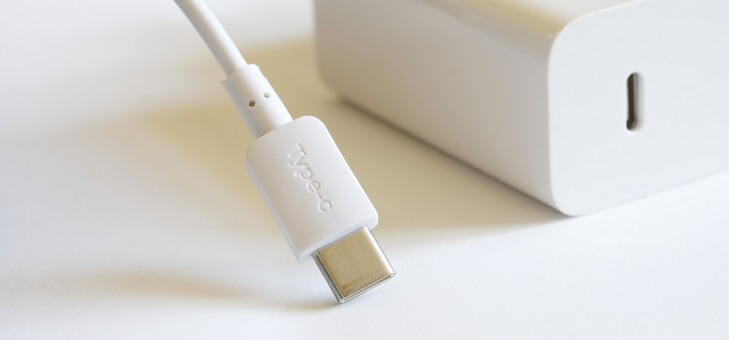Fishing through drawers to find the right charging cable may soon become a thing of the past, once a new ruling from the European Union (EU) comes into effect.
From 2024, all smartphones, tablets, cameras, headphones, portable speakers and handheld video game devices will need to use the standard USB-C charging port if they are to be sold in the EU. Laptops will join the list from 2025.
This may sound like just another boring technical ruling from the other side of the world, but the legislation may have consequences reaching much further than Europe’s borders.
It could mean the end of proprietary charging cables and ports, such as Apple’s iPhone Lightning cable and brand-specific laptop charging cables.
Read: How to fix cracked iPhone screens and tired batteries
Manufacturing separate ‘EU-specific’ models of every device would be prohibitively expensive, and companies are unlikely to do it. Abandoning the EU market altogether is also not an option, not with over 447 million potential customers in some of the wealthiest nations on earth.
Changing all device sold everywhere to the standard USB-C cable would make the most economic sense for tech companies.
Just think, soon when borrowing a phone charger at a friend’s house, you won’t need to ask if they use an iPhone or an Android phone. You’ll be able to charge your laptop using any charging cable you can find, no matter what brand it is.
No longer will you need to have drawers full of anonymous cables for devices you’ve long disposed of, and can’t recall exactly what the cable was for.
Read: Are you killing your smartphone?
The EU says it is implementing the changes principally to reduce e-waste, but also to make it easier for consumers to switch brands and products whenever they wish.
“The new requirements will ultimately contribute to the reuse of chargers and help consumers to save €250 million a year on unnecessary charger purchases,” the EU says in a statement.
“The new measures are expected to generate environmental benefits by reducing greenhouse gas emissions of approximately 180ktCO2e [kilotonnes of carbon dioxide or equivalent] yearly and reducing e-waste by almost a thousand tonnes yearly.”
Tech giants have predictably responded negatively to the news, with Apple calling the move “anti-consumer” and claiming it would actually increase e-waste.
Read: Low-tech mobile phones designed for older citizens
“We remain concerned that strict regulation mandating just one type of connector stifles innovation rather than encouraging it, which in turn will harm consumers in Europe and around the world,” Apple says.
Ben Wood, chief analyst at CCS Insight, told The Guardian the announcement amounts to a “non-issue” for Apple as the firm already uses USB-C on a number of its products.
“Having one common charging standard would be a victory for common sense in the eyes of consumers,” he said.
“Although Apple has made a strong argument for it keeping its Lightning connector … some of its products, including Mac and iPad Pro, now support USB-C.
“Hopefully, it will eventually become a non-issue if Apple keeps adding USB-C to more devices, and that means ultimately we could see USB-C coming to iPhone.”
There are already reports that Apple is indeed working on a USB-C iPhone model, so hopefully a future free of cluttered cables is not too far away.
If you enjoy our content, don’t keep it to yourself. Share our free eNews with your friends and encourage them to sign up.

